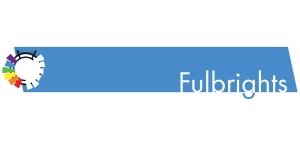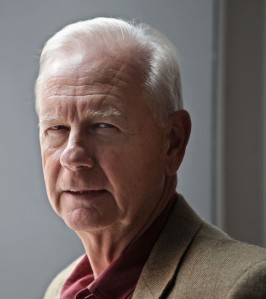 David L. Altheide is Regents’ Professor Emeritus, Arizona State University. He submitted the following comments about his Fulbright awards.
David L. Altheide is Regents’ Professor Emeritus, Arizona State University. He submitted the following comments about his Fulbright awards.
 I made two Fulbright visits as a Fulbright Specialist after I retired from Arizona State University in 2011. The first visit was in 2012 to Zeppelin University (Friedrichshafen, Germany), with a brief lecture trip to Vienna, Austria; the second was in 2017 to Universidade Catolica Portuguesa (Lisbon, Portugal). A few comments about contacts, networks, and curricular notions will be followed by an overview of the experiences.
I made two Fulbright visits as a Fulbright Specialist after I retired from Arizona State University in 2011. The first visit was in 2012 to Zeppelin University (Friedrichshafen, Germany), with a brief lecture trip to Vienna, Austria; the second was in 2017 to Universidade Catolica Portuguesa (Lisbon, Portugal). A few comments about contacts, networks, and curricular notions will be followed by an overview of the experiences.
The major impact of my visit to both countries was connecting with key faculty and graduate students. At Zeppelin University, which I had previously visited two years prior, I was reacquainted with a major scholar, Nico Stehr (Karl-Mannheim Chair of Cultural Studies) and my main Fulbright guide, Marian Adolf. A few years after my Fulbright appointment, Professor Stehr visited Arizona State University as a guest of the School of Sustainability. I corresponded with several faculty and graduate students after the conclusion of the visit. The visit to Lisbon, although much briefer (i.e., 2 weeks), also produced some collaborative discussion with faculty and graduate students. I forwarded to ASU colleagues and others copies of research reports and ongoing projects from both universities. Two of my former students were in contact with faculty in Lisbon about their own projects. Finally, I was able to connect faculty from Zeppelin and the Catholic University with scholars in the EU who share common interests. I was invited to return to Lisbon for additional lectures in October 2019.
Another interesting development was contributing to some disciplinary integration. I am a sociologist with a long history of research, teaching, and publishing in mass communication, news and propaganda, and fear communication—all areas that are also associated with Communication Departments and scholarship. (I also taught in an Interdisciplinary School of Justice Studies at Arizona State University). It seemed that my Fulbright lectures and seminars attracted students and faculty from various disciplines, who might not otherwise have much contact. Our conversations, often during meals, etc., occasionally sparked some shared topics of interests that could promote collaborative work in the future in the host institutions.
It is always a challenge to separate out key experiences of the visits since there are so many cultural insights and contrasts, but I can make a few comments about the process that led to my two Fulbright awards. I have been fortunate to do some research-related travel and collaboration with foreign colleagues prior to pursuing a Fulbright Award. The first thing to stress is practicality: Because of my family priorities, commitments to students, and other university responsibilities, I never really considered applying for Fulbright Award that would typically last six months to a year. It was not until toward the end of my teaching career that I learned about and pursued the Fulbright Specialist Award, which could last 2-6 weeks. I learned from colleagues at home and abroad that there is also a pragmatic aspect of a shorter term for a host institution as well: Many universities that do not have a visiting scholar tradition and resources simply are not equipped to support and deal with a visiting faculty person for an extended time. Thus, a Fulbright Specialist award was an ideal situation for my research interests, although the emphasis would not be collecting data per se, but rather, interacting with colleagues, students, offering assistance and suggestions about curricula, programmatic concerns, and perhaps some administrative suggestions. Having worked in an interdisciplinary Ph.D. program in Justice Studies, I felt comfortable offering some modest suggestions for promoting cross-discipline integration, including team-teaching. Moreover, I found that the shorter time periods of the Fulbright Specialist were often more manageable for host institutions in terms of more modest support. Fortunately, I was able to use some contacts and familiarity from an initial lecture visit, to develop an application for a six-week appointment at Zeppelin University in Friedrichshafen, Germany. Several years later a general inquiry about visiting Lisbon morphed into an invitation to spend two weeks at the Universidade Catolica Portuguesa. I heartily recommend considering a Fulbright Specialist Award. Indeed, my enthusiastic discussions with colleagues led a fellow professor and a former student to apply for and receive a Fulbright Specialist Award. My only regret is that administrative rules prevent me from receiving another award for several years to assist other international faculties.
